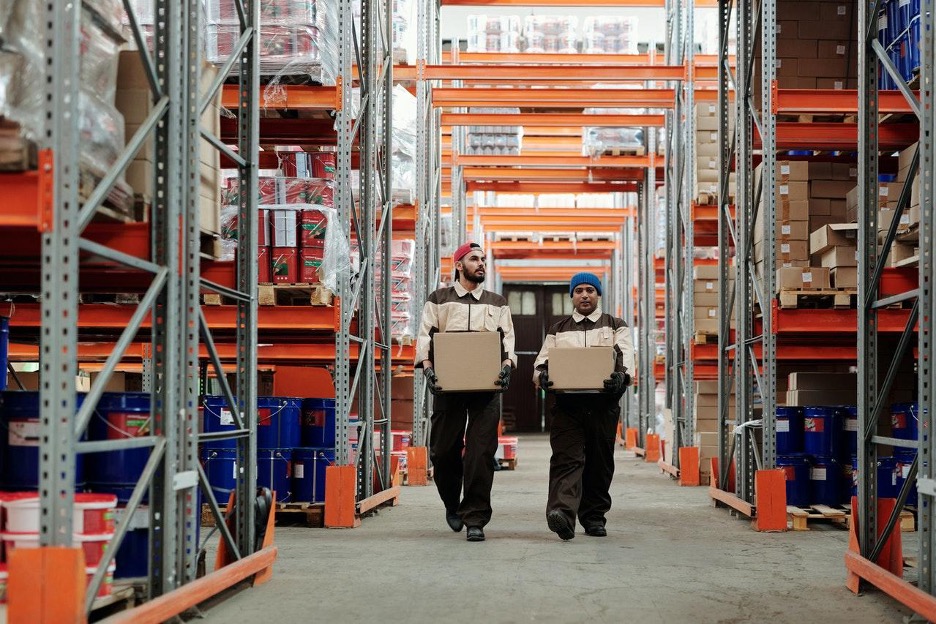Supply chain management is essential to success in the competitive, global marketplace. Emerging technologies are changing how businesses handle supply chain management, which is crucial for the effective flow of goods from manufacturers to consumers. This article will examine these cutting-edge technologies’ enormous effects and how they change how freight supply chains are organised and handled.
Artificial Intelligence and Machine Learning
The combination of AI and ML is one of the biggest game-changers in supply chain management. AI algorithms analyse huge volumes of data to generate predictive and prescriptive recommendations, which aid businesses in improving route planning, demand forecasting, and inventory management. Businesses can cut expenses, increase productivity, and decrease errors by automating certain procedures.
Internet of Things (IoT) and Real-Time Tracking
The supply chain may now be tracked and monitored in real-time thanks to the Internet of Things (IoT). IoT sensors attached to goods, machines, and other transportation provide useful information on temperature, humidity, position, and other factors. By enhancing supply chain transparency through real-time visibility, businesses can respond promptly to disruptions, cut down on delays, and guarantee the quality and safety of their products.
Blockchain for Transparency and Traceability
By increasing transparency and traceability, blockchain technology is revolutionising supply chain management. An immutable ledger keeps track of every transaction and transfer of commodities, establishing an uninterrupted chain of custody. In addition to fostering trust among players, this deters fraud and counterfeiting. Blockchain is being embraced across industries to assure the legitimacy and provenance of products, from food safety to luxury goods.
Robotics and Automation
Supply chain operations are becoming more efficient because of the employment of robotics and automation in warehouses and distribution hubs. Robotic systems are effective at picking, packing, and shipping goods, which lowers labour costs and increases order accuracy. Inventory management is another area where automation is important. Autonomous drones and robots can conduct routine stock checks, reducing overstock and stockouts.
Predictive Analytics for Demand Forecasting
Utilising historical data and AI algorithms, predictive analytics forecasts demand with unheard-of precision. Companies can optimise inventory levels and decrease surplus stock by looking at seasonality, market trends, and consumer behaviour. It enhances cash flow and guarantees that goods are accessible when clients need them.
Sustainability and Green Logistics
Emerging technologies are also driving initiatives for supply chain sustainability. Carbon emissions are being reduced by electric and driverless vehicles, and data analytics are used to find ways to improve energy efficiency and reduce waste. Businesses are putting more of an emphasis on green logistics in order to satisfy consumer demand as well as regulatory needs.
Supplier Relationship Management (SRM) with Big Data
Supplier relationship management is changing as a result of big data analytics. Businesses may now analyse large datasets to evaluate supplier performance, spot hazards, and improve terms. This data-driven strategy boosts overall supply chain resilience, lowers supply chain interruptions, and increases supplier collaboration.
Cybersecurity and Data Protection
Due to supply chains’ increasing reliance on digital technologies, they are exposed to cybersecurity risks. Sensitive supply chain data must be protected in order to avoid data breaches and interruptions. Information about the supply chain is being protected by cutting-edge technology like blockchain’s cryptographic security and AI-powered cybersecurity solutions.
The Human Element in Tech-Driven Supply Chains
Supply chain management is being changed by technology, but the human element is still crucial. In order to manage and evaluate the data produced by these technologies, make strategic decisions, and manage operations, skilled individuals are required. In order to close the digital skills gap and realise the full potential of emerging technologies, businesses must invest in employee training.
Supply Chain Resilience in an Uncertain World
It has become crucial in rising geopolitical tensions and unexpected global occurrences. Strategic planning and emerging technology are essential for creating resilient supply networks and dubai freight forwarding companies. AI-powered risk assessment systems can aid in the early detection of possible interruptions, enabling businesses to create backup plans quickly. Additionally, incorporating 3D printing technology can enable on-demand production, lowering reliance on far-off suppliers and decreasing supply chain risks.
The Road Ahead
Future developments will only have a greater impact on supply chain management for dubai shipping company. As quantum computing develops, it will release previously unheard-of processing power, opening the door to more intricate simulations and optimisation. For businesses looking to gain a competitive edge in a changing market, embracing these innovations will be essential.
A convergence of human knowledge and emerging technologies is dramatically transforming the supply chain environment. Businesses can negotiate the problems of the modern world while constructing more robust, effective, and sustainable supply chains for the future by continuously adjusting and innovating.
New technologies are fundamentally changing how supply chain management is done. These technologies, which range from blockchain for transparency and automation for efficiency to AI and IoT for real-time tracking, are improving sustainability, streamlining operations, and lowering prices. Companies must change, invest in digital transformation, and embrace the symbiotic relationship between human talent and cutting-edge technologies to succeed in this tech-driven environment. Supply chain management has a bright future ahead of it, with innovation and efficiency setting the standard.









